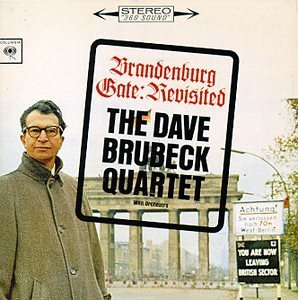
| Artist: | Dave Brubeck |
| Title: | Brandenburg Gate: Revisited |
| Released: | 1961 |
| Label: | Columbia Records |
| Time: | 34:35 |
| Producer(s): | See Artists ... |
| Appears with: | Name |
| Category: | Jazz |
| Rating: | *********. (9/10) |
| Media type: | CD |
| Purchase date: | 2000.12.13 |
| Price in €: | 9,74 |
| Web address: | dave-brubeck.com |